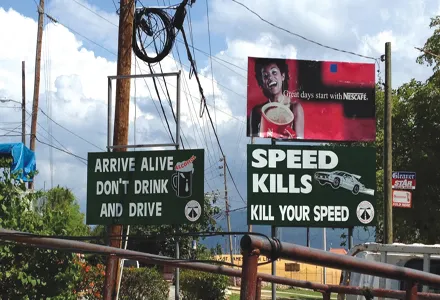According to World Health Organisation figures, 307 lives were lost in over 13,000 road accidents in 2011, a figure dominated by male drivers and car occupants. Buoyed by IRF’s Safer Road by Design seminar which preceded the Congress, the Road Safety Unit in the Jamaican Ministry of Transport, Works and Housing is already taking steps to address the presence of turned-down ends and concrete utility poles on the country’s roadsides.
July 20, 2012
Read time: 2 mins

According to
In an interview with the Jamaica Observer, Kenute Hare, the unit’s director, stated that the presence of rigid light poles could prove fatal if a motorist should lose control of his/her vehicle. "International standards dictate we have to make the roadways more user friendly. So, we are asking the light and power company to erect new light posts using less rigid material for the light posts", he added.
Efforts to tackle distracted driving also gained significant moment during the congress with the announcement of new legislation banning the use of cell phones while driving before the end of 2012. In his opening statement at the congress, minister Davies declared: “We intend to launch pre-emptive strikes against those who are intent on creating imbalances in the traffic environment. The new Road Traffic Act will, among other things, deal with the issue of driving while using mobile phones, including texting while driving.”







